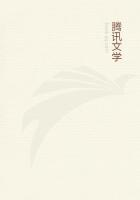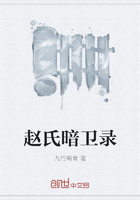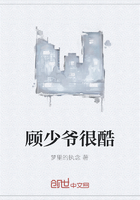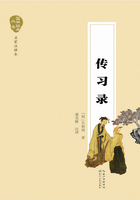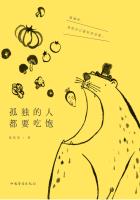Vronsky arrived at the theater at half-past eight The performance was in full swing. The little old boxkeeper, recognizing Vronsky as he helped him off with his fur coat, called him `Your Excellency,' and suggested he should not take a check but should simply call Fiodor. In the brightly lighted corridor there was no one but the box opener and two footmen with fur cloaks on their arms listening at the doors. Through the closed doors came the sounds of the discreet staccato accompaniment of the orchestra, and a single female voice rendering distinctly a musical phrase. The door opened to let the box opener slip through, and the phrase drawing to the end reached Vronsky's hearing clearly. But the doors were closed again at once, and Vronsky did not hear the end of the phrase and the cadence of the accompaniment, though he knew from the thunder of applause that it was over. When he entered the hall, brilliantly lighted with chandeliers and gas jets, the noise was still going on. On the stage the singer, bowing and smiling, flashing with bare shoulders and with diamonds, was, with the help of the tenor who had given her his arm, gathering up the bouquets that were clumsily flying over the footlights. Then she went up to a gentleman with glossy pomaded hair parted down the middle, who was stretching across the footlights holding out something to her, and all the public in the stalls as well as in the boxes was in excitement, craning forward, shouting and clapping. The conductor in his high chair assisted in passing the offering, and straightened his white tie. Vronsky walked into the middle of the stalls, and, standing still, began looking about him. That day less than ever was his attention turned upon the familiar, habitual surroundings, the stage, the noise, all the familiar, uninteresting, particolored herd of spectators in the packed theater.
There were, as always, the same ladies of some sort with officers of some sort in the back of the boxes; the same gaily dressed women - God knows who - and uniforms and black coats; the same dirty crowd in the upper gallery, and among the crowd, in the boxes and in the front rows, were some forty of the real people, men and women. And to those oases Vronsky at once directed his attention, and with them he entered at once into relation.
The act was over when he went in, and so he did not go straight to his brother's box, but going up to the first row of stalls stopped at the footlights with Serpukhovskoy, who, standing with one knee, raised and his heel on the footlights, caught sight of him in the distance and beckoned to him, smiling.
Vronsky had not yet seen Anna. He purposely avoided looking in her direction. But he knew by the direction of people's eyes where she was. He looked round discreetly, but he was not seeking her; expecting the worst, his eyes sought for Alexei Alexandrovich. To his relief Alexei Alexandrovich was not in the theater that evening.
`How little of the military man there is left in you!' Serpukhovskoy was saying to him. `A diplomat, an artist, something of that sort, one would say.'
`Yes, it was like going back home when I put on a dress coat,'
answered Vronsky, smiling and slowly taking out his opera glasses.
`Well, I'll own I envy you there. When I come back from abroad and put on this,' he touched his shoulder knot, `I regret my *******.'
Serpukhovskoy had long given up all hope of Vronsky's career, but he liked him as before, and was now particularly cordial to him.
`What a pity you were not in time for the first act!'
Vronsky, listening with half an ear, moved his opera glasses from the stalls and scanned the boxes. Near a lady in a turban and a bald old man, who seemed to blink angrily in the moving opera glasses, Vronsky suddenly caught sight of Anna's head, proud, strikingly beautiful, and smiling in its frame of lace. She was in the fifth box, twenty paces from him. She was sitting in front, and, slightly turning, was saying something to Iashvin.
The setting of her head on her handsome, broad shoulders, and the restrained excitement and brilliance of her eyes and her whole face reminded him of her just as he had seen her at the ball in Moscow. But he felt utterly different toward her beauty now. In his feeling for her now there was no element of mystery, and so her beauty, though it attracted him even more intensely than before, gave him now a sense of injury. She was not looking in his direction, but Vronsky felt that she had seen him already.
When Vronsky turned the opera glasses again in that direction, he noticed that Princess Varvara was particularly red, and kept laughing unnaturally and looking round at the next box. Anna, folding her fan and tapping it on the red velvet, was gazing away and did not see, and obviously did not wish to see, what was taking place in the next box. Iashvin's face wore the expression which was common when he was losing at cards. Scowling, he sucked the left tip of his mustache further and further into his mouth, and cast sidelong glances at the next box.





